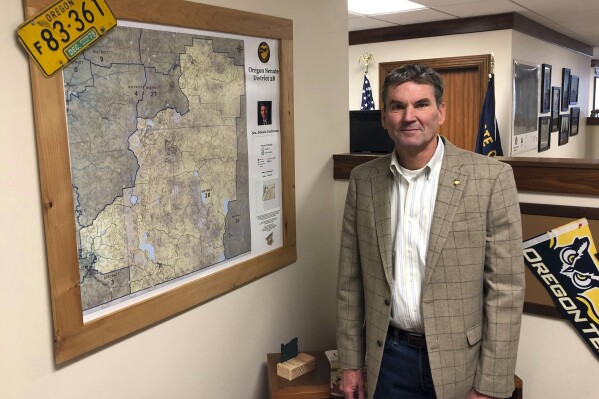North Carolina high court says a gun-related crime can happen in any public space, not just highway
RALEIGH, N.C. (AP) — A North Carolina crime originating in English common law that occurs when an armed person tries to terrify the public doesn’t require that it occur on a public highway, the state Supreme Court ruled on Friday.
The justices reversed a 2022 Court of Appeals decision that vacated Darren O’Brien Lancaster’s conviction on one count of “going armed to the terror of the public” in part for what happened in 2019 in Havelock.
Police in the Craven County town had responded to a call about someone who was “waving a gun and firing rounds off kind of aimlessly in the parking lot” of an apartment complex, Friday’s opinion said. Another call later said that same person was at another location with a firearm, yelling at a woman.
Lancaster was located, and a handgun in a nearby vehicle belonged to him, according to testimony. He was convicted on several counts and received roughly one to two years in prison.



A majority on a Court of Appeals panel determined the indictment was defective because it lacked the public highway element necessary for the crime, and ordered a new sentencing.
The prevailing Court of Appeals opinion cited a 1977 decision from the same intermediate-level court that the panel believed it was bound to follow, Associate Justice Phil Berger Jr. wrote in Friday’s decision, which also attempted to clarify the necessary components of the law.
Berger went as far back to a 14th century English statute to find that the “armed to the terror of the public” crime wasn’t restricted to offenses committed “about a public highway,” but they could occur in fairs, markets or any other public location.
Berger also rejected the arguments from Lancaster’s attorney that there was nothing unusual about a “run-of-the-mill firearm” and that the charging documents failed to describe why it was unusual so as to meet the necessary elements of the crime. Berger cited an 1843 state Supreme Court ruling that a gun is an unusual weapon.
“The indictment here adequately alleged facts supporting each element of the crime of going armed to the terror of the public,” Berger wrote in the opinion, backed by all six justices who participated in the case.
Disclaimer: The copyright of this article belongs to the original author. Reposting this article is solely for the purpose of information dissemination and does not constitute any investment advice. If there is any infringement, please contact us immediately. We will make corrections or deletions as necessary. Thank you.



